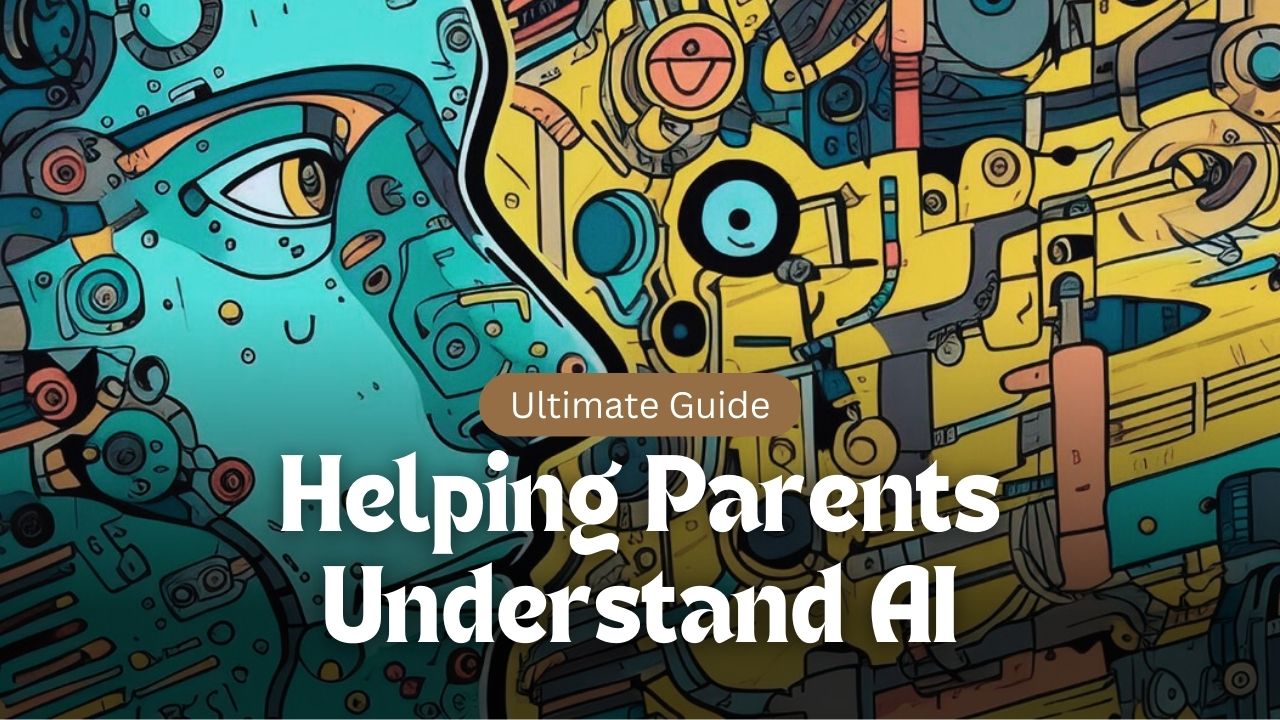
If you’ve ever watched your parents struggle to send a simple text message or navigate an online app, you know how technology can feel like an entirely different world to them. For many older adults, the rapid rise of digital tools like AI has made the tech divide even wider. While they might be familiar with certain devices, introducing them to new technologies like artificial intelligence (AI) can feel overwhelming. As younger generations who grew up with technology, it’s our role to guide our parents through these challenges and help them understand how these tools work, ultimately bridging that tech divide.
According to ExpressVPN’s survey on how to teach your parents about tech, many older adults struggle with modern tools and may feel disconnected from the rapidly advancing digital landscape. By taking the time to teach them about the benefits and risks of modern technology, we can empower our parents to stay connected and safe online. Whether it’s about helping them use AI assistants or guiding them through safe online habits, the goal is to make them feel confident and comfortable in today’s digital world.
Introducing New Technologies to Your Parents
While your parents might be comfortable using smartphones or laptops, introducing new technologies like artificial intelligence (AI) can feel daunting. AI is everywhere now—from voice assistants like Alexa and Siri to more complex systems like smart home devices. But for parents who didn’t grow up with these advancements, understanding and using AI might feel like something out of a science fiction movie.
Start Small: Voice Assistants as a Gateway to AI
The key to introducing AI to your parents is to start with simple examples. Begin with voice assistants, which are often easy to grasp and can make life more convenient. For instance, explain how they can use voice commands to set reminders, ask about the weather, or play music. Voice assistants are an excellent way to show them how AI can make daily tasks easier without feeling overwhelming.
Addressing the AI Hesitation: Why Some Older Adults Are Reluctant
About 63% of Younger Millennials engage with AI in some form, such as chatbots or smart home devices. However, this number drops to 24% for those aged 69 and older, reflecting the hesitation older adults feel when it comes to adopting these technologies. Many older adults view AI with caution because they don’t fully understand how it works, but bridging this gap can help them see AI as a tool rather than something to fear.
Demonstrating AI’s Benefits in Daily Life
Start by demonstrating the benefits. If they’re struggling with remembering appointments or managing their day, show them how AI can provide reminders and help with scheduling. Gradually introduce more complex AI tools, like smart home devices or security systems, which can help them feel safer at home. The goal is to make AI feel like an aid, not an obstacle.
Making AI Relatable and Easy to Understand
Another important step is to explain AI in terms they can relate to. For example, comparing an AI assistant to a helpful secretary or a personal reminder service can make it more understandable. Use simple language and avoid technical jargon to keep things approachable. The more they see the practical side of AI, the less intimidating it will become.
Be Patient: Support and Encouragement Are Key
Lastly, keep patience in mind. Introducing new technology can be frustrating at first, but offering continuous support and encouragement will help them feel more confident. Let them know they can always ask questions and make it a point to walk them through new features at their own pace.
Educating Your Parents on Staying Safe Online
Staying safe online is a critical part of helping parents navigate technology. Older adults are often more trusting and less familiar with the common online scams that are becoming increasingly sophisticated. It’s important to start with basic digital safety principles to ensure they can enjoy the benefits of being connected without falling victim to fraud or scams.
Recognizing Common Scams and Security Threats
Phishing emails, social media scams, and tech support fraud are among the most common scams targeting older adults. Teaching your parents how to recognize phishing attempts—those suspicious emails asking for personal information—is essential. Explain that legitimate companies will never ask for passwords, banking details, or other sensitive information via email. Encourage them to verify any messages directly with the company if something looks unusual.
Strengthening Passwords and Using Two-factor Authentication
Another crucial tip is encouraging the use of strong, unique passwords. Many older adults tend to reuse the same password for multiple accounts, which makes them more vulnerable to hacking. Help them set up a password manager so they don’t have to remember every password, and teach them how to create strong passwords that are difficult to guess.
Setting up two-factor authentication (2FA) can also make a huge difference in online security. With 2FA, even if a password is compromised, a second layer of security—usually a code sent to a phone—can protect their account.
The Importance of Software Updates
Lastly, explain the importance of software updates. Regular updates often contain critical security patches that help protect against new threats. Encourage your parents to keep their devices up to date to reduce the risk of malware or security breaches.
Empowering Parents Through Digital Confidence
The journey to helping your parents understand AI and other modern technologies is about more than just teaching—it’s about building their digital confidence. The more they feel comfortable with technology, the more independent they will become online. It’s not just about keeping them safe but empowering them to fully engage with the digital tools that can enhance their daily lives.
For additional tips on AI tools, check out Internet Matter’s guide, which offers valuable insights on how to introduce AI to your parents and help them navigate these advanced technologies.
Conclusion
Helping parents understand AI and navigate the digital world can feel like a challenge, but it’s also an opportunity to strengthen their digital confidence. Whether it’s teaching them about online safety or introducing them to the practical benefits of AI, the key is patience and support. By guiding your parents, you’re helping them stay connected and empowered in today’s tech-driven world.
Ready to help your parents bridge the tech divide? Start with simple steps like teaching them online safety, and introduce them to helpful AI tools that can make life easier. Together, you can build their confidence in navigating the digital world.
-
Honor X8c with 120Hz Display Launched in Nepal with an Early Bird OfferHIGHLIGHTS Honor X8c price in Nepal is Rs. 33,999 (8/512GB). It is powered by the…
-
HMD Crest Max 5G Launching Soon in Nepal – Now Even BetterHIGHLIGHTS HMD Crest Max 5G price in Nepal could be Rs. 21,999 (8/256GB). This phone…
-
Now You Can Buy a Xiaomi Phone on EMI in Nepal Too – Here’s How!HIGHLIGHTS Xiaomi launched its hassle-free EMI service dubbed the “Xiaomi Easy Finance”. The latest Redmi…










